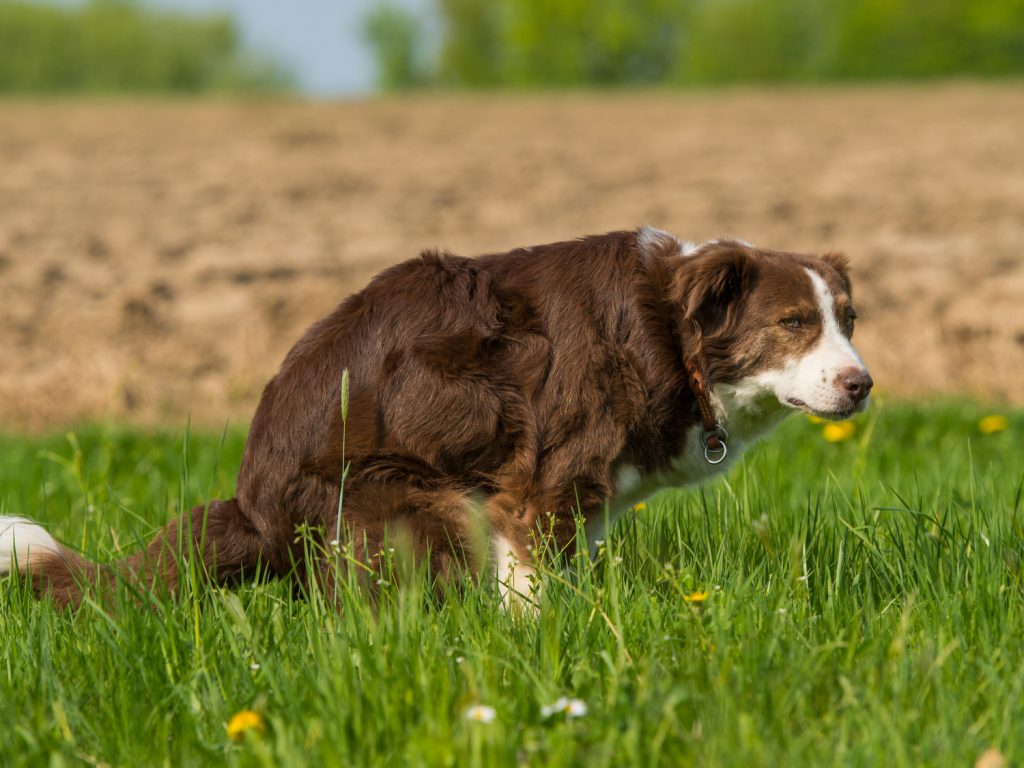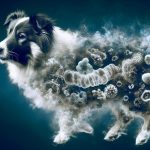Imagine this: you’re strolling through the park with your beloved four-legged companion, enjoying the fresh air and sunshine. Your pup is frolicking around, chasing after birds and sniffing every nook and cranny. Suddenly, they come across something on the ground that catches their interest. Before you know it, they’ve gobbled it up – and to your dismay, it’s rabbit poop.
If you’re a pet parent, chances are you’ve encountered this scenario before. Dogs have a natural instinct to explore their environment with their mouths, which can lead them to consume less-than-appetizing things – like rabbit droppings. And while it may seem harmless at first, this behavior can actually have some unpleasant consequences for our furry friends.
One of the most common side effects of dogs eating rabbit poop is diarrhea. Yes, you read that correctly – diarrhea from eating poop. In this blog post, we’ll delve into why dogs find rabbit poop so irresistible and how it can result in loose stools for our canine companions.
So, grab your favorite beverage and let’s dig deeper into this not-so-pleasant topic.
My Dog Ate Rabbit Poop And Has Diarrhea?
Table of Contents
- 1 My Dog Ate Rabbit Poop And Has Diarrhea?
- 2 Understanding the Digestive System of Dogs
- 3 Why Eating Rabbit Poop Can Cause Diarrhea in Dogs
- 4 Potential Risks and Dangers of a Dog Eating Rabbit Poop
- 5 Symptoms to Look Out For in Your Dog
- 6 Treatment Options for Diarrhea Caused by Rabbit Poop Ingestion
- 7 Prevention Techniques for Future Incidents
- 8 Conclusion
There are various potential reasons for why your canine might experience diarrhea after munching on rabbit poop. These may include parasitic infections, toxicity due to exposure to pesticides or plants, and difficulty breaking down the high-fiber content of rabbit excrement.
To avoid these problems, it is advisable to keep your furry friend away from areas where rabbits may be present and make sure to regularly clean up any rabbit droppings in your yard.
However, if your dog does end up with diarrhea after consuming rabbit poop, it is crucial to closely monitor their condition and seek professional veterinary advice if the issue persists. Possible solutions for relieving their symptoms could involve temporary fasting, providing a bland diet, and administering probiotics.
Nonetheless, it is important to consult with a veterinarian for proper treatment if the symptoms continue or worsen.
Understanding the Digestive System of Dogs
The digestive system of dogs is a complex system composed of various organs, including the mouth, esophagus, stomach, small intestine, large intestine, and rectum.
Each organ plays a critical role in breaking down food and absorbing essential nutrients. When a dog consumes food, it first enters the mouth, where it is chewed and mixed with saliva. The saliva contains enzymes that begin the process of breaking down carbohydrates.
The food is then swallowed and travels down the esophagus into the stomach. In the stomach, the food is further broken down by powerful acids and enzymes.
This not only aids in digestion but also helps to eliminate any harmful bacteria present in the food. The food then moves into the small intestine, where most of the nutrients are absorbed into the bloodstream. Any undigested food then enters the large intestine, where water is absorbed, and waste products are formed.
These waste products are eventually expelled through the rectum.
However, when a dog consumes rabbit poop, it enters their digestive system in the same way as any other food. Rabbit poop contains high levels of fiber and nutrients that are not easily digestible by dogs.
As a result, it remains in the digestive tract for an extended period, disrupting the normal functioning of the system. This can lead to diarrhea due to increased water absorption in the large intestine caused by the undigested rabbit poop. Furthermore, bacteria from the rabbit poop can also cause inflammation in the digestive tract, resulting in diarrhea.
Not all dogs will experience diarrhea after consuming rabbit poop. However, some dogs may have a more sensitive digestive system and are more prone to developing diarrhea as a result of eating rabbit poop. It is crucial to monitor your dog’s behavior after they have consumed rabbit poop.
If they show any signs of discomfort or have diarrhea for more than 24 hours, it is best to seek advice from a veterinarian. Untreated diarrhea can lead to dehydration and other serious health complications.
Why Eating Rabbit Poop Can Cause Diarrhea in Dogs
Consuming rabbit excrements can have a detrimental effect on a dog’s digestive system, causing diarrhea due to various underlying factors. Let’s delve deeper into how eating rabbit poop can impact a dog’s digestive system.
- Imbalanced Nutrition: The consumption of rabbit poop introduces high levels of fiber into a dog’s diet, which is not easily digestible for them. This can cause an imbalance in their digestive system, leading to loose stool or diarrhea when consumed in large quantities.
- Parasitic Infections: Rabbits are carriers of numerous parasites, including roundworms, pinworms, and tapeworms. When a dog ingests rabbit poop, they are at a heightened risk of contracting these parasites, leading to diarrhea and other health complications.
- Harmful Microorganisms: Rabbit feces may also contain harmful bacteria and viruses that can cause infections, diseases, or poisoning in dogs. These can disrupt the normal functioning of the digestive system and lead to diarrhea.
- Behavioral Problems: Dogs have an innate instinct to scavenge and explore their surroundings, which may include consuming feces of other animals. If they develop a habit of eating rabbit poop, it can disrupt their digestive system and cause diarrhea.
To better comprehend the impact of consuming rabbit poop on a dog’s digestive system, here is a table summarizing the potential complications:
| Complications | Description |
| Vomiting | The ingestion of rabbit poop can induce vomiting in dogs due to the high levels of fiber that are difficult to digest. |
| Loose stool or diarrhea | The excessive fiber content in rabbit poop can lead to an imbalance in the digestive system, resulting in loose stool or diarrhea. |
| Decreased appetite | If a dog experiences discomfort or pain due to consuming rabbit poop, it may lose its appetite. |
| Stomach gurgling | The digestive system of dogs may make gurgling sounds when trying to process the high fiber content in rabbit poop. |
| Increased flatulence | The fermentation of fiber in the digestive system can lead to increased flatulence in dogs. |
| Lethargy | A dog’s energy levels may decrease due to discomfort or illness caused by consuming rabbit poop. |
| Bad breath | The bacteria and parasites present in rabbit poop can cause bad breath in dogs. |
| Dental problems | If a dog consumes hard rabbit feces, it can lead to dental issues such as chipping or breaking of teeth. |
Potential Risks and Dangers of a Dog Eating Rabbit Poop
The act of a dog consuming rabbit poop can have several potential risks and dangers, which can ultimately lead to the unpleasant experience of diarrhea. Some of the most notable risks and dangers include:
- Parasitic infections: Rabbit feces may contain harmful parasites like Giardia and tapeworms, which can infect dogs if consumed. These parasites are known to cause gastrointestinal problems and result in diarrhea.
- Bacterial infections: Along with parasites, rabbit poop can also harbor dangerous bacteria such as Salmonella and E. coli. If ingested by a dog, these bacteria can cause severe illness and result in diarrhea.
- Behavioral tendencies: Dogs have a natural instinct to scavenge for food and may develop a habit of eating rabbit poop if left unsupervised. This behavior not only increases the risk of consuming harmful substances and bacteria but also leads to diarrhea.
- High fiber content: Rabbit poop is rich in fiber, which can be difficult for dogs to digest. Consuming large amounts of rabbit poop can cause digestive issues like vomiting and diarrhea.
If your dog has consumed a significant amount of rabbit poop and is displaying symptoms like diarrhea, it is crucial to seek immediate veterinary care. The veterinarian may prescribe medication or suggest a change in diet to alleviate the symptoms and prevent any further health complications.
| Signs of Diarrhea in Dogs | Causes | Treatment Options |
| Vomiting, diarrhea, decreased appetite, lethargy | Ingestion of rabbit poop containing parasites or bacteria | Medication, change in diet, seeking veterinary care |
To prevent your dog from consuming rabbit poop, it is important to supervise them when they are outside and remove any potential sources of rabbit feces from your yard. You can also train your dog to avoid scavenging for food and provide them with a balanced and nutritious diet, which can help reduce their urge to eat rabbit poop.
Symptoms to Look Out For in Your Dog
If your dog has recently consumed rabbit poop and is now experiencing diarrhea, there are a few common symptoms that may arise. These include:
- Increased frequency of bowel movements: Dogs who have ingested rabbit feces may experience an increase in the frequency of their bowel movements, leading to more frequent trips outside.
- Loose or watery stools: As a result of consuming rabbit droppings, dogs may experience diarrhea, which can present itself in the form of loose or watery stools.
- Straining during bowel movements: If your dog is dealing with diarrhea due to eating rabbit poop, they may strain or have difficulty during their bowel movements.
- Loss of appetite: Diarrhea can also cause dogs to lose their appetite, as it can be a sign of gastrointestinal discomfort or illness.
- Vomiting: In some cases, dogs may also experience vomiting as a reaction to consuming rabbit feces and the subsequent digestive issues it can cause.
- Lethargy: Dogs who are not feeling well due to diarrhea may also appear lethargic or have less energy than usual.
If your furry companion is exhibiting these symptoms after consuming rabbit poop, it is crucial to seek veterinary care. Your veterinarian can properly diagnose and treat any underlying issues and provide recommendations for preventing future incidents.
Furthermore, you can also take preventative measures such as keeping rabbits out of your yard and training your dog to avoid consuming unknown substances.
Treatment Options for Diarrhea Caused by Rabbit Poop Ingestion
There are numerous effective methods for treating diarrhea in dogs caused by ingestion of rabbit droppings. These options include supportive measures, medication, hospitalization, and dietary adjustments. It is crucial to seek professional veterinary attention and adhere to the prescribed treatment plan to ensure your canine companion’s complete recovery. Moreover, prevention is essential in avoiding this issue from recurring in the future.
When it comes to treating your furry friend, there are many possible solutions available. However, finding the right one can be a bit of a challenge. That’s why it’s important to have a thorough understanding of each option and its potential outcomes.
Supportive care is often the first line of treatment for diarrhea caused by ingesting rabbit poop in dogs. This includes keeping your dog hydrated by providing plenty of fresh water and electrolyte-rich fluids. Additionally, you may need to switch your dog to a bland diet consisting of boiled chicken and rice to help ease their symptoms.
In more severe cases, medication may be necessary. Your veterinarian may prescribe antibiotics to combat any bacterial infections or anti-diarrheal medications to alleviate discomfort. It’s crucial to follow the recommended dosage and duration of treatment to ensure effective results.
In some cases, hospitalization may be required for close monitoring and administration of intravenous fluids and medications. This is typically reserved for severe cases where the dog is at risk of dehydration or other complications.
Lastly, making dietary changes can also play a crucial role in preventing further episodes of diarrhea caused by rabbit poop ingestion. This includes keeping your dog away from areas where they may come into contact with rabbit droppings and maintaining a balanced diet with appropriate amounts of fiber.
Also Read: Can Dogs Eat Chili Cheese Fries?
Prevention Techniques for Future Incidents
- Maintain a Balanced Diet: One of the primary methods of preventing undesirable behaviors, such as eating rabbit poop, is to ensure that your dog is receiving a healthy, well-balanced diet. This will prevent them from seeking out other sources of nutrients.
- Utilize Distasteful Deterrents: Another effective technique is to make the rabbit droppings unappealing to your dog. You can sprinkle a small amount of Tabasco sauce or lemon juice on the droppings, as dogs typically dislike the taste of these ingredients.
- Train Basic Commands: It is crucial to train your dog with basic commands like “leave it” or “drop it.” This will allow you to redirect their attention away from the rabbit droppings and prevent them from consuming them.
- Keep a Watchful Eye: Supervising your dog while they are outside is essential in preventing them from eating rabbit poop. If you notice them approaching or attempting to eat droppings, you can intervene and stop them before they ingest it.
- Provide Ample Stimulation: Boredom and stress can lead dogs to engage in undesirable behaviors, such as eating rabbit poop. To prevent this, make sure your dog has plenty of mental and physical stimulation through toys, games, and regular exercise.
- Fence Off the Area: If possible, consider fencing off the area where rabbits frequent or where their droppings are commonly found. This will prevent your dog from having access to the poop and temptations.
- Clean Up Regularly: Lastly, regularly cleaning up any rabbit droppings in your yard or on walks can help prevent your dog from eating them. This may require some extra effort, but it will ultimately keep your furry friend safe and healthy.
Conclusion
After careful consideration, it is evident that a seemingly harmless act of a dog consuming rabbit poop can lead to unpleasant consequences, such as diarrhea. This behavior can be triggered by various factors, including parasitic infections, toxicity, and difficulty digesting the high-fiber content of rabbit droppings.
To prevent this from happening, it is crucial to keep our canine companions away from areas where rabbits may be present and diligently clean up any droppings in our yards.
If your dog does end up with diarrhea after consuming rabbit poop, closely monitoring their condition is imperative. Seeking professional veterinary advice should the issue persist is also highly recommended.
Treatment options may include supportive care, medication, hospitalization, and dietary adjustments. However, as the old saying goes, prevention is always better than cure.
By maintaining a balanced diet for our dogs, training them with basic commands, providing ample stimulation and keeping a watchful eye on them, we can ensure their health and happiness.






